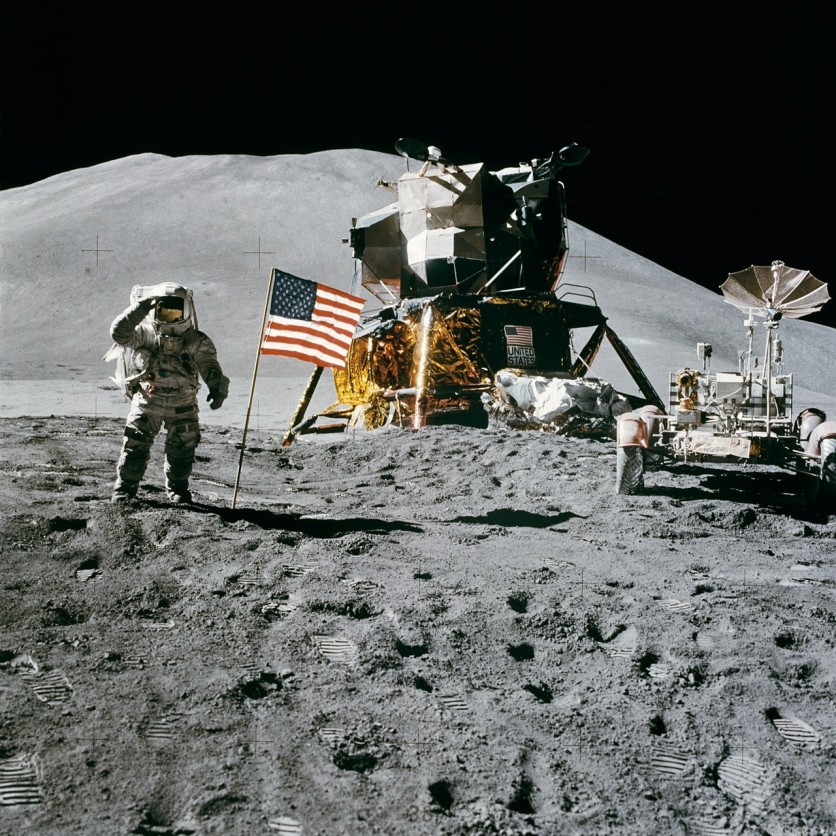
The Artemis Accords, an international agreement on responsible and sustainable moon exploration, has been signed by Brazil, the National Aeronautics and Space Administration (NASA) has announced.
In doing so, Brazil became the first ever South American country to sign, joining 11other countries that include Japan, Canada, United Arab Emirates, the United Kingdom, the United States of America, Australia, Luxembourg, the Republic of Korea, New Zealand, Ukraine, and Italy.
The Artemis Accords was signed by Brazil Minister of Science, Technology, and Innovation Marcos Pontes on June 15 in a ceremony held in Brasilia. President Jair Bolsonaro, Minister of Foreign Affairs Carlos Alberto França, and other Brazilian officials were present at the ceremony.
"As an astronaut and Minister of Science, Technology and Innovation, it is an honor for me to sign Brazil's adhesion to the Artemis Accords," Pontes said in a statement.
Artemis Accords: What is It?

Established in 2020 by NASA and the U.S. Department of State, the Artemis Accords is an international agreement that aims for a safe, responsible exploration of the moon. It also reinforces the 1967 Treaty on Principles Governing the Activities of States in the Exploration and Use of Outer Space, Including the Moon and Other Celestial Bodies, which is also known as the Outer Space Treaty.
Ten principles have been established by the Artemis Accords to guide the participating nations:
Peaceful Exploration - All activities of the Artemis Program will be conducted for peaceful purposes and will enhance peaceful relationships between participating nations
Transparency - Participating nations must be transparent with all their plans and policies regarding the project
Interoperability - Partners are encouraged to open and develop international standards for space exploration
Emergency Assistance - NASA and the participating nations reaffirm their commitment to the Agreement on the Rescue of Astronauts, the Return of Astronauts and the Return of Objects Launched into Outer Space
Registration of Space Objects - The Artemis Accords encourages partner nations to join the Registration Convention as soon as possible
Release of Scientific Data - Scientific data must be released publicly for the full benefit of everyone
Preserving Heritage - NASA and the signatories of the Artemis Accords will commit to protecting historical sites and artifacts
Space Resources - Partner nations can only extract and utilize resources on the Moon, Mars, and asteroids as mandated by the Outer Space Treaty
Deconfliction of Activities - Public information regarding the location and general nature of the operations will be made available
Orbital Debris - The signatories of the Artemis Accords will commit to mitigating orbital debris, including the safe and responsible disposal of spacecrafts used
According to Space, signatories of the Artemis Accords will also participate in the Artemis Program, which seeks to return humans to the moon in 2024.
Related Article: NASA Announces 8 Countries Signing Up for the Artemis Accords with the Newest Addition, the UAE!
Other Countries That Haven't Signed
China and Russia are noticeably absent from the current list of supporters of the Artemis Accords. NASA has been banned by the U.S. Congress to collaborate with China, according to Business Insider. As for Russia, no clear reason has been given yet beyond the program being too "US-centric."
Other countries and organizations who have yet to sign the Accords despite having the resources for space exploration include France, Germany, India, and the European Space Agency (ESA).
Also Read: China Chang'e 6 Lunar Exploration 2024: European Countries' Tech to be Showcased
This article is owned by Tech Times
Written by Isabella James




